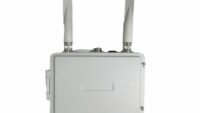Introduction
Fly-tipping is one of the most persistent environmental problems in towns across the UK, and High Wycombe is no exception. It affects not only the town’s appearance but also public health and local wildlife. From household rubbish to construction debris, illegally dumped waste can quickly become a serious issue if not handled promptly. Understanding how to report and arrange proper removal is the first step toward keeping High Wycombe’s neighbourhoods clean and safe for everyone.
Understanding the Problem
Fly-tipping is the illegal dumping of waste on land without the owner’s or the local authority’s permission. It’s not only unsightly but also harmful to the environment. Dumped materials can attract vermin, release toxic substances, and block drainage systems.
The scale of the problem in High Wycombe has grown over the years, particularly in rural lanes and industrial areas. Local authorities continue to tackle it with surveillance, community awareness, and stricter penalties for offenders. However, public cooperation remains crucial. That’s where residents can play a vital role by reporting and assisting in fly tip rubbish removal High Wycombe initiatives.
Why Prompt Reporting Matters
Quickly reporting fly-tipped waste helps prevent further dumping and protects the environment from long-term damage. When waste is left unattended, others may add more rubbish, turning a minor issue into a large-scale dumping site.
Residents who notice illegal dumping can contact local authorities or use online platforms to report. Many prefer to hire professional services specialising in fly tip rubbish removal High Wycombe to ensure the waste is handled safely and lawfully. These companies are licensed to collect, transport, and dispose of garbage at authorised facilities — reducing the burden on public services and ensuring full legal compliance.
How to Report Fly-Tipped Waste
Reporting fly-tipping is straightforward and can usually be done online or by phone. High Wycombe residents can use the Buckinghamshire Council’s website or contact their local waste management team. Here’s what to do:
- Identify the location: Note the exact address or nearest landmark where the rubbish is found.
- Describe the waste: Mention the type of waste (household items, garden waste, construction debris, etc.).
- Avoid touching the waste: Fly-tipped materials can be hazardous.
- Provide photos if possible: Photographs help authorities assess the situation quickly.
Once reported, the council will inspect the site and arrange removal through their waste contractors. In some cases, investigations may follow if the waste contains identifiable information leading to the offender.
Using Licensed Waste Removal Services
While local authorities handle public land, waste dumped on private property is the owner’s responsibility. This is where professional clearance services play a major role. Licensed companies in High Wycombe provide efficient and lawful waste removal, ensuring no harm to the environment.
Professional teams are equipped to deal with:
- Household and garden waste
- Building and renovation debris
- Commercial waste and fly-tipped rubbish
- Hazardous or bulky items
They provide documentation, such as a Waste Transfer Note, confirming the waste was disposed of properly — a key step for legal and environmental accountability.
Legal Implications of Fly-Tipping
Fly-tipping is a criminal offence under the Environmental Protection Act 1990. Those found guilty can face heavy fines or even imprisonment. Vehicle owners can be held liable if their vehicles are used for illegal dumping, even if they weren’t the ones driving at the time.
Equally important is ensuring that you don’t accidentally contribute to fly-tipping. When hiring someone to remove waste, always check that they hold a valid waste carrier licence issued by the Environment Agency. Failing to do so can make you responsible if your waste is later found to have been dumped illegally.
The Role of the Community
Community involvement is essential in combating illegal dumping. Residents, neighbourhood groups, and schools in High Wycombe are increasingly taking part in clean-up drives and awareness campaigns. Such efforts not only improve the local environment but also encourage a culture of shared responsibility.
Residents can also support initiatives by:
- Reporting suspicious dumping activity promptly
- Educating neighbours about responsible waste disposal
- Participating in local clean-up events
- Sharing information about licensed waste carriers
Together, these actions help create cleaner, safer, and more pleasant neighbourhoods.
Preventing Fly-Tipping in the Future
Prevention is as important as removal. The best way to reduce fly-tipping is to make responsible waste disposal accessible and easy. This includes using local recycling centres, arranging bulk waste collections, and ensuring businesses follow waste management regulations.
In High Wycombe, the local council operates several recycling sites where residents can dispose of large or unusual waste items safely. Keeping bins secure, reducing waste generation, and staying informed about disposal services are practical steps every household can take.
Environmental and Economic Impact
Illegal dumping has far-reaching consequences beyond aesthetics. It contaminates soil and water, harms wildlife, and can lower property values. Local councils spend millions annually clearing up waste that could have been disposed of properly — funds that could otherwise support community projects or infrastructure.
By ensuring that rubbish is removed through legitimate services, residents help reduce public expenditure and promote environmental protection. Every responsible action contributes to a cleaner, greener High Wycombe.
Conclusion
Fly-tipping is more than a nuisance — it’s a threat to the environment, public health, and community pride. Reporting incidents and arranging lawful disposal through professional services are key steps in tackling the problem.
With collective effort, awareness, and responsible waste management, High Wycombe can continue to be a town where residents take pride in clean streets and protected green spaces. When you see dumped waste, don’t ignore it — report it and act responsibly. Together, we can make a real difference.




